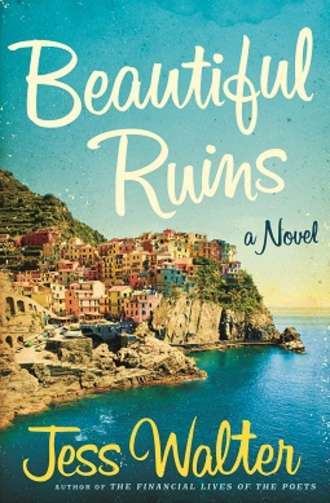
Beautiful Ruins
By Jess Walter
(Harper)
Embraced by everyone from Anthony Trollope to Tom Wolfe, the social satire remains enduringly popular. For good reason; readers get to peer, not just into the hearts of the novel’s characters, but into the soul of the culture itself. It’s a high-wire act for the novelist ― how to retain empathy for his characters, even as he shreds the pretensions, the evasions and the hypocrisies of the times his characters live in.
Acclaimed author Jess Walter takes on such a task in his ambitious new novel “Beautiful Ruins,” as he creates an ensemble of memorable characters and runs them through the Hollywood entertainment mill.
“Beautiful Ruins” dissects popular media ― reality TV’s race to the bottom to find the lowest common denominator, story arcs for audiences with the attention span of a flea, bad taste in grotesque abundance.
The story begins in the early 1960s with the filming of the movie “Cleopatra,” when Elizabeth Taylor and Richard Burton’s love life became bigger news than the movie itself, and paparazzi jammed the streets of Rome to get a snap of the most famous lovers in the world.
Against this Technicolor backdrop emerges one man of pure heart ― a young Italian named Pasquale Tursi, who runs a pensione on the Ligurian coast called Hotel Adequate View (just one of many of this novel’s LOL moments).
One day a vision arrives at the pensione ― a young American actress, escorted via motorboat into the cove beneath the hotel. The actress, Dee Moray, has stomach cancer (or so she has been led to believe). She’s waiting for a man to come to help her through her ordeal. Pasquale falls in love, the love that never ends.
From here, the intricate plot ricochets hither and yon ― from the tiny cliff-hanging hamlet of Porto Vergogna (Port Shame in Italian), to Florence, to Rome. From the Italian theater in World War II to the 2000s, with stops in Portland, Ore.; Edinburgh; Hollywood; Seattle; and Sand Point, Idaho.
A real-life theatrical giant, Richard Burton, makes several memorable appearances. Contemporary characters reflect our celebrity-drenched, no-shame zeitgeist.
“Beautiful Ruins” asks: How do you balance desire with doing the right thing? It’s the epic struggle of our time, when so much choice is at our fingertips, and finding the right path is correspondingly difficult. Pasquale’s mother tells her son the key is balance: “what we want to do and what we must do are not the same ... Pasquo, the smaller the place between your desire and what is right, the happier you’ll be.”
Beneath Walter’s black comic’s mask beats the brain of an ethical philosopher and the heart of a romantic. Not everyone in “Beautiful Ruins” gets what they want. But they do get what they need. (MCT)








